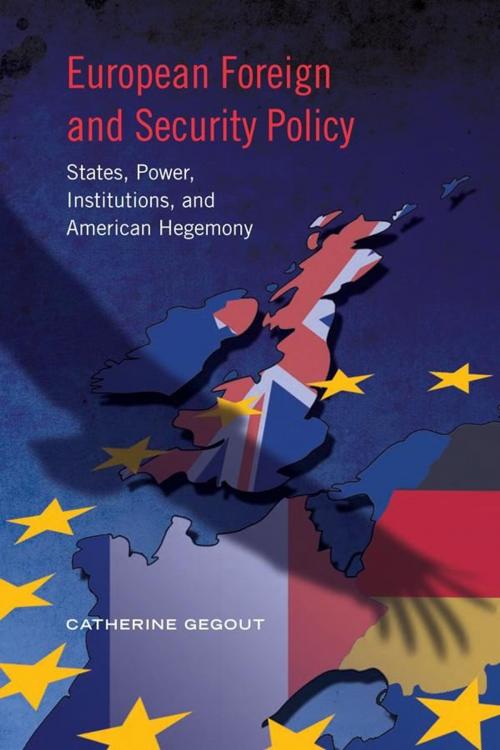European Foreign and Security Policy
States, Power, Institutions, and American Hegemony
Nonfiction, Social & Cultural Studies, Political Science, International, International Relations| Author: | Catherine Gegout | ISBN: | 9781442698727 |
| Publisher: | University of Toronto Press, Scholarly Publishing Division | Publication: | May 8, 2010 |
| Imprint: | Language: | English |
| Author: | Catherine Gegout |
| ISBN: | 9781442698727 |
| Publisher: | University of Toronto Press, Scholarly Publishing Division |
| Publication: | May 8, 2010 |
| Imprint: | |
| Language: | English |
The European Union's (EU) Common Foreign and Security Policy (CFSP) stipulates that all member states must unanimously ratify policy proposals through their representatives on the EU Council. Intergovernmentalism, or the need for equal agreement from all member nations, is used by many political scientists and policy analysts to study how the EU achieves its CFSP. However, in European Foreign and Security Policy, Catherine Gegout modifies this theory, arguing instead for analyses based on what she terms 'constrained intergovernmentalism.'
Gegout's theory of constrained intergovernmentalism allows for member states, in particular France, Germany, and the United Kingdom, to bargain with one another and to make rational decisions but also takes into account the constraints imposed by the United States, the European Commission, and the precedents set by past decisions. Three in-depth case studies of CFSP decision-making support her argument, as she examines the EU position on China's human rights record, EU sanctions against Serbia, and EU relations with NATO.
The European Union's (EU) Common Foreign and Security Policy (CFSP) stipulates that all member states must unanimously ratify policy proposals through their representatives on the EU Council. Intergovernmentalism, or the need for equal agreement from all member nations, is used by many political scientists and policy analysts to study how the EU achieves its CFSP. However, in European Foreign and Security Policy, Catherine Gegout modifies this theory, arguing instead for analyses based on what she terms 'constrained intergovernmentalism.'
Gegout's theory of constrained intergovernmentalism allows for member states, in particular France, Germany, and the United Kingdom, to bargain with one another and to make rational decisions but also takes into account the constraints imposed by the United States, the European Commission, and the precedents set by past decisions. Three in-depth case studies of CFSP decision-making support her argument, as she examines the EU position on China's human rights record, EU sanctions against Serbia, and EU relations with NATO.















